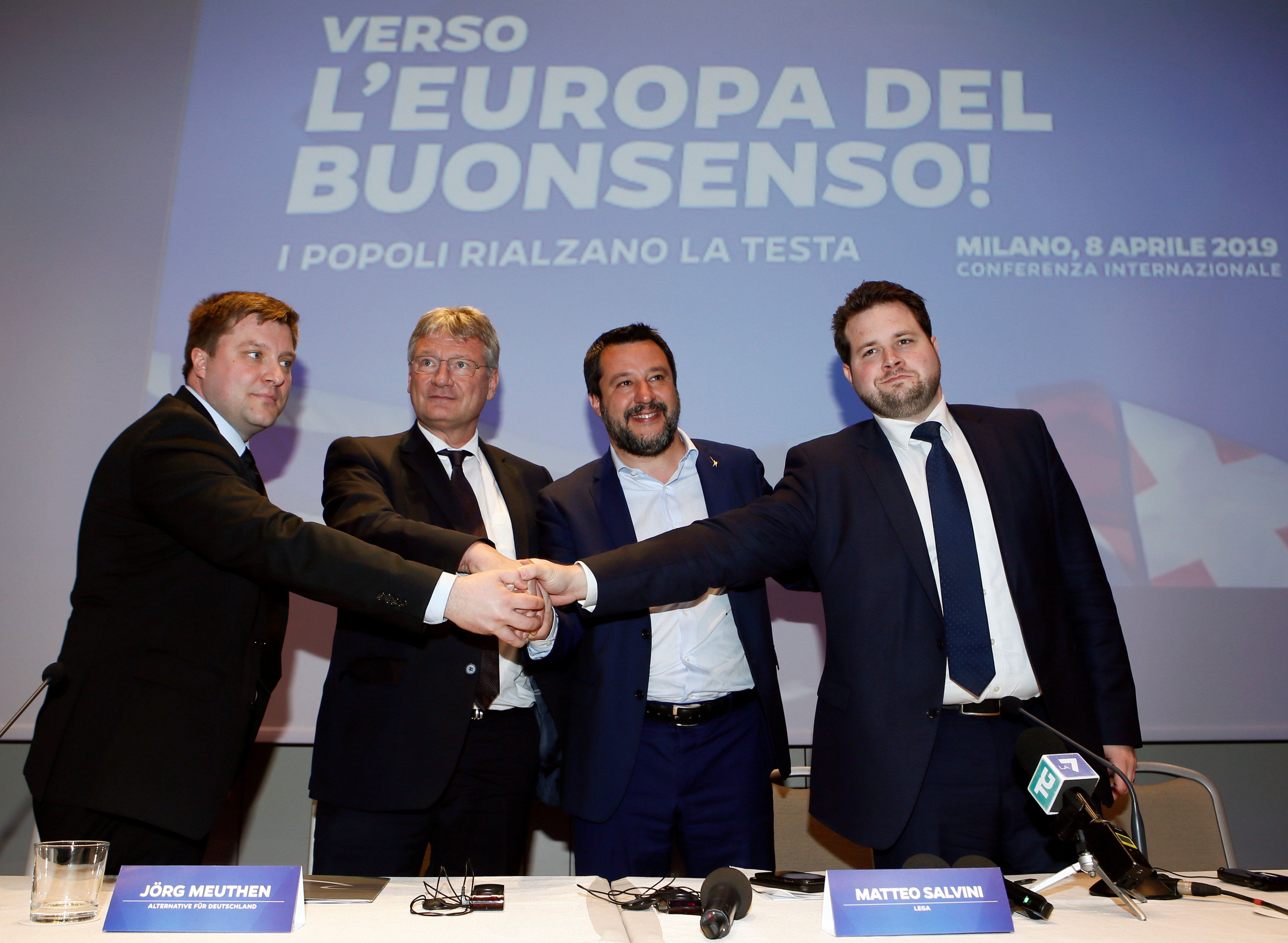Yesterday, Italy's far-right Interior Minister Matteo Salvini threw a big party meant to launch a new alliance of European populist nationalist parties.
There was just one problem: not many people showed up.
Mr. Salvini, the most powerful politician in Italy, wants to "broaden the . . . family" of far-right parties ahead of elections to the European Parliament next month. Not a bad plan, given that support for the far-right across Europe has surged in recent years.
But some of Europe's most powerful far-right leaders took a rain check on the get-together. Conspicuous no-shows included members of France's National Rally, Hungary's Fidesz, and Poland's Law and Justice.
The problem for Salvini is that while Europe's far-right populists all agree on the need to curb the EU's power and push back against its liberal values, they disagree on some very big issues:
Views of the EU differ widely: While bashing Brussels is a standard crowd-pleaser for right-wing parties, views of the EU actually vary widely across the countries currently governed by such parties: only 42 percent of Italians believe EU membership has been good for their country. But in Hungary and Poland 60 and 70 percent of people, respectively, say the same.
Who takes the migrants? Europe's far-right leaders generally agree they want to close Europe's borders to further migrants (at least non-Christian ones). But there's friction over how to handle those who manage to arrive. Countries like Italy, which has absorbed more than 360,000 migrant arrivals since 2016, want others to share the burden. But Hungary and Poland have refused to take even a single migrant, defying an EU resettlement program. This fundamental disagreement complicates attempts by the far-right to forge a common migrant policy, a key component of European governance.
Relations with Russia: Far-right leaders in Italy and Austria want better relations with Moscow, seeing Russia as a welcome business partner and source of political leverage against Brussels. But Poland's Law and Justice prefers a more cautious approach, owing to Poland's historical concerns about Russian intentions. So while Rome and Vienna expressly called for ending Ukraine-related sanctions on Russia, you'd never hear such a thing from Warsaw.
Upshot: Europe's far-right parties have surged in recent years, but when it comes down to it, they'll chafe at least as much against each other as they do against Brussels.